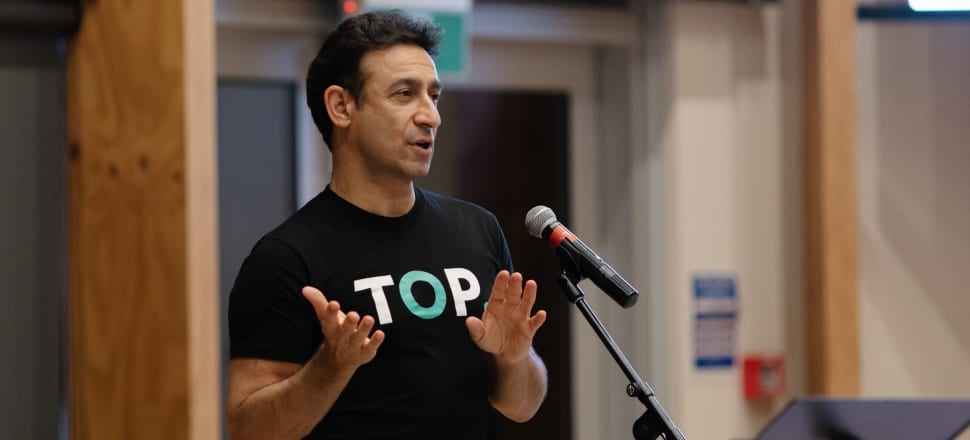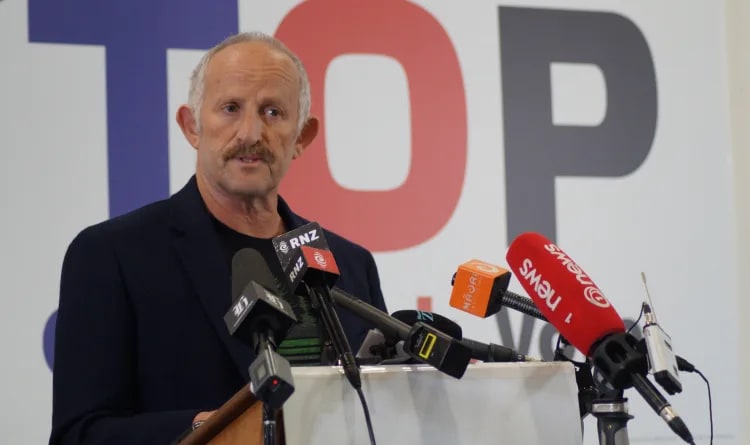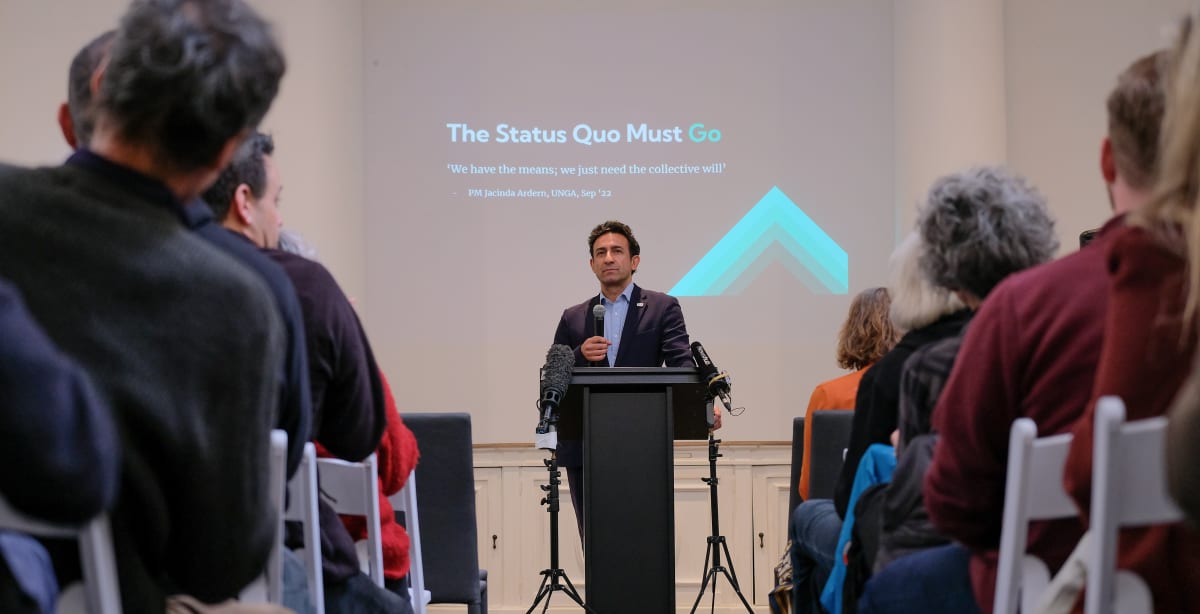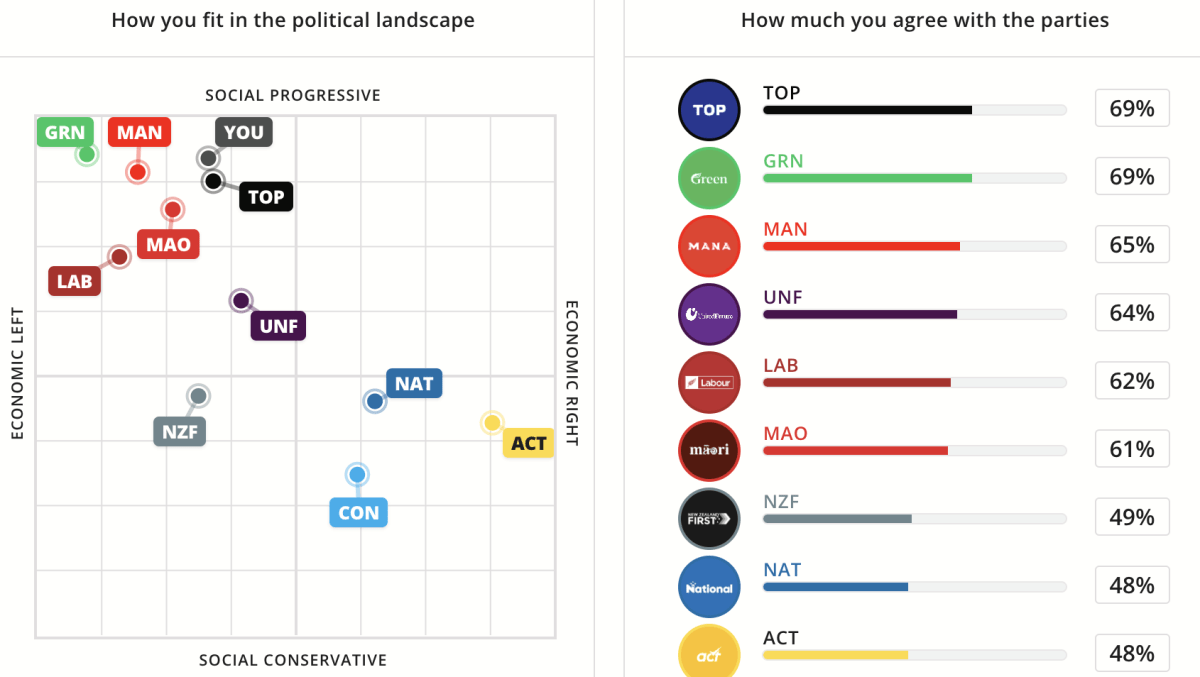
The Opportunities Party leader Raf Manji talks to Nikki Mandow about going teal, and the opportunity for a party that’s pro-business and pro-environment
Raf Manji, leader of The Opportunities Party, is just a tad defensive about his new ‘Teal Deal’ policy, announced this week. I was expecting ‘teal’ to represent a mixing of the traditional ‘blue’ and ‘green’ policy shades, which is what the colour teal is.
But the Teal Deal contains very little about the environment, or about business. Instead, Manji says, ‘teal’ is more a reference to independent thought and policy difference. That's been one of the hallmarks of the loose ‘teal’ grouping in Australia.
There is a climate angle to the Teal Deal, he says – pushing the demand side of fossil fuel-free transport with a $1500 credit offered to anyone under 30 buying a bike, e-bike or e-scooter. But mostly the policy is about a programme to promote health, savings and wellbeing for young people through free medical, dental and mental health care, a $5000 “universal savings boost” at 18 and a “national civic service” programme – a sort of cross between Outward Bound and the Student Volunteer Army.
READ MORE: * Is it time for business to push for green politics * The next election should be a referendum on climate * In 2023, climate will get political
“The Teal Deal would be delivered through the Teal Card, a youth version of the Super Gold Card but with more benefits,” Manji says. “The physical card and accompanying digital app would connect into government systems such as health, finance and public transport, store vouchers such as the bike/micro-mobility credit, and be able to engage with external providers through an API (open digital access) system.”
Funding for the deal – which TOP has costed at $1.5 billion – would come from the Climate Response Fund, and from increasing the top rates of income and corporate tax. That could cause some waves in business circles.
“The opportunities are endless,” the press release says. “Teal is the colour of opportunity,” Manji tells me.
TOP and teal
As I've said, the Teal Deal was not what I was expecting. I first talked to Manji a month ago, just after Cyclone Gabrielle and the Auckland/upper North Island floods.
Manji told me about Project Teal and the (then) upcoming launch. I was interested in ‘teal-ness’ – a political option mixing a strong focus on climate change with business nous. Like what a National-Green tie-up would look like if the very thought of that wasn’t anathema to both sides.
Like how the media has categorised the ‘teal’ independents contesting federal and state elections in Australia – "a shade between blue Liberal and green". I wondered whether The Opportunities Party was that; I wondered what The Opportunities Party was.
Manji tells me he’s colour blind, so those subtle nuances in TOP’s new logo and branding are hard for him to see. But teal became the party’s official brand colour last year, he says, moving away from founder Gareth Morgan's blue-red-black.

He says for TOP, that conjunction between business and the environment is important.
Before becoming a political leader in 2020, Manji stood as an independent in Christchurch’s Ilam electorate in 2017, coming second to National’s Gerry Brownlee. But he’s been thinking about this stuff for a while.
“I wrote an article in 2004 for NBR; they had an insert on sustainable business back then. And essentially what I was saying was that the Greens and business constantly shouted at each other. Back then it was Roger Kerr and the Business Roundtable and I said, ‘Look, Roger, you are constantly lambasting the Greens and they are constantly arguing with you’.
“And I said: ‘Do you agree that businesses should pay the full costs of production?’ He said ‘Absolutely’. And I said ‘OK, that’s what we’re talking about’.”
Manji spent 11 years at the beginning of his career working in London as a capital markets and global currency trader, before leaving banking and joining an environmental startup. Since then, he’s been involved in the not-for-profit sector, and in Christchurch City Council. That mix has given him his position at the intersection of economic, environmental and social issues.
He says a Green-National tie up makes total sense in terms of the environment and the business community. Politically it’s impossible.
“Will National and the Greens talk to each other? No, because their membership will never support it. The Greens have basically been pretty anti-business and anti-capitalist. And although I know a lot of people in the business community who are really focused on environmental issues, if you said ‘Would you vote Green?’ they’d say ‘Forget it’.”
Manji says the Greens’ James Shaw – who started his career with PwC, before going on to consult for big corporates and work in impact investment – bridges the worlds of commerce and sustainability. But the bizarre episode last year when Shaw had to convince his own party membership to reinstate him as co-leader, highlights the political mistrust and leaves the Greens tied to Labour.
“They can keep the Greens in the corner and feed them scraps. ‘Hey, James, you want to be Minister of Climate Change? Great, here you go, but actually we still make all the decisions’.”
Sounds extreme? At his state of the planet address at the weekend, Shaw said for the Greens to be really effective they needed Green ministers in Cabinet.
“More Green ministers means we will be at the table to influence the direction of the next government.”
Manji says “there has always been space for a party that is pro-business and pro-environment”, and (of course) The Opportunities Party fills that gap.
“I’m not a traditional greenie; I came very much from the economics side of things, which is actually ecological economics. We need to price things properly, we need to get incentives in the right place. And there are loads of people like that."
Need for stability
Manji was up in Auckland last week at a Climate Leaders Coalition event, talking about the party’s climate policy stance – still quite broad church at present, but with more specifics coming out next month, he says. The invitation-only CLC meeting came the same week as some big political change around New Zealand’s climate change politics. Labour purged a bunch of climate-related policies, and National’s climate change spokesperson and former leader Todd Muller announced his resignation.
“The feedback I got from the CEOs was they’re frustrated with both politicians and the officials in constantly changing policy and not having any clarity about what the long-term investment pathway is," Manji says.

“They have to make some huge capital allocation decisions; they want to be able to go to their shareholders and say, ‘Right, we’re investing $x million over the next 10 years because it’s going to produce this outcome. And they look at the politicians and see a lot of dithering and a lot of policies which sound good but probably won’t actually work.”
Seven months till kick-off
And so to the election. Manji is standing in Ilam – his fourth campaign (local or national) in Christchurch in 10 years – and he’s optimistic he has a chance.
“I mean, I got 24 percent in 2017, with a seven-week campaign running primarily on an earthquake platform. This is very different.”
TOP has more chance of getting into Parliament by winning Ilam than if they rely on reaching the five percent party vote threshold. They got 2.4 percent in 2017 under founder, investment manager and economist Gareth Morgan (who is also a far-flung motorbike traveller and controversial anti-cat campaigner). That number shrunk to 1.5 percent in the 2020 election under Geoff Simmons.
Manji is undaunted. The last couple of polls had TOP at 2 percent and 2.3 percent, he says. That would make a punter’s vote count in October, as long as TOP wins Ilam.
“That could be three MPs. I don’t see it as holding the balance of power, but I do see it as an opportunity to influence, to try and get New Zealand going in the right direction.”
The good thing about TOP, he says, is they’ll work with any political hue.
“We are very practically focused. We can work with National quite easily, we can work with Labour and we can work with the Greens. We could even work with ACT.”
ACT? ‘Let’s not bother with climate change mitigation’ ACT? ‘Let’s not attend that Climate Leaders Coalition event’ ACT? Sure, Manji says. Saying TOP could work with ACT doesn’t mean it’s supporting them.
“I can sit down with business and talk turkey, but I can talk very strongly about environmental issues and social issues.”
He’s already announced his first bunch of six candidates: two men, four women, including a lawyer, a child/emergency doctor, and a young economics graduate born in the United Arab Emirates. These are professional women, interested in social and climate issues, like many of the Australian teal independents.
What TOP candidates don’t have, however, is the several million dollars of political funding provided in Australia by the businessman and climate philanthropist Simon Holmes à Court and Climate 200.
He’s canvassing business people about financial support, he says. Half a million dollars would go a long way.
The ‘wasted vote’ challenge
I tell Manji about my personal experience. In 2017 I completed the Vote Compass-TVNZ pre-election survey. The tool asked me questions about my political leanings and then lined me up with the political party it thought best reflected my views. To my surprise, TOP ended up top of my list.

But I didn’t vote for TOP. And when I told that story at a Newsroom editorial meeting, one of my colleagues said he’d also been matched with TOP in 2017. He didn’t vote for them either. There was that feeling you’d be wasting your vote.
Manji laughs wryly. “If everyone who told me it was a wasted vote voted for us, we'd be at 10 percent,” he says.
Maybe.







